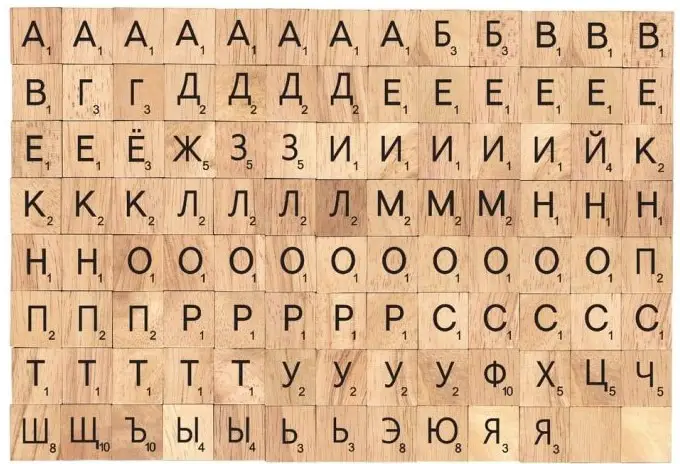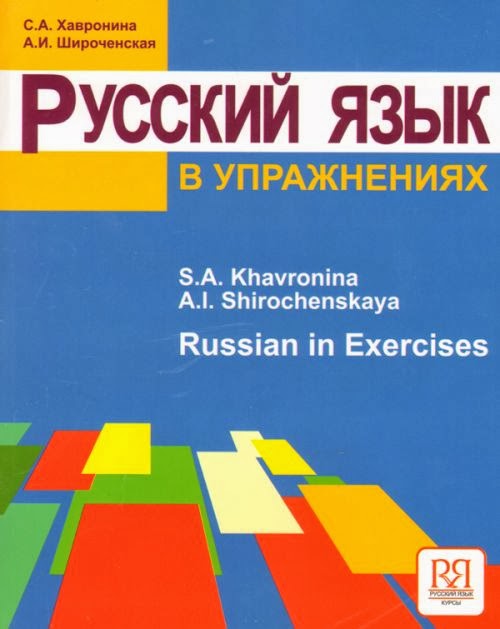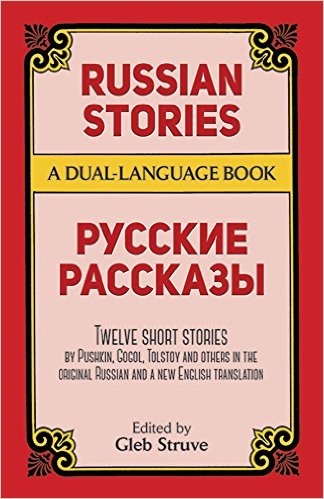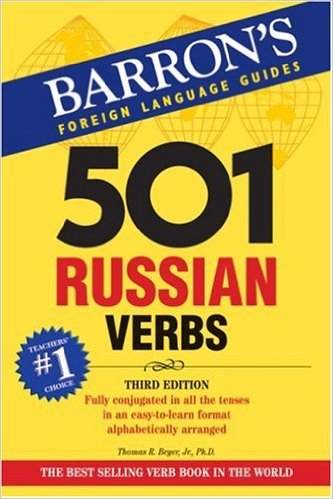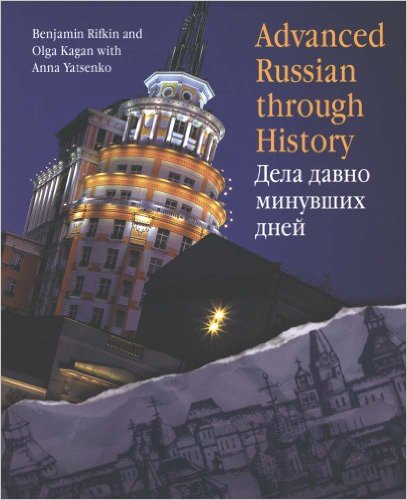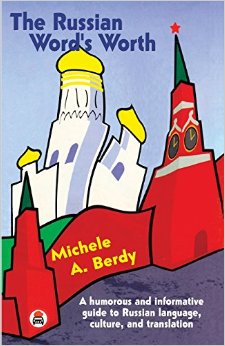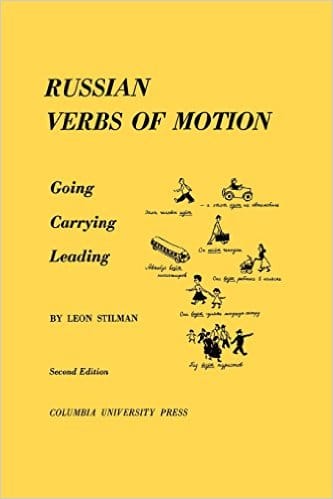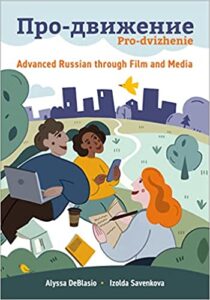This extensive list of web resources to assist students learning the Russian language was developed by SRAS and is now hosted on Folkways, part of the SRAS Family of Sites!
Disclosure: Some of the links below are affiliate links. This means that, at zero cost to you, we will earn an affiliate commission if you click through the link and finalize a purchase. Revenue earned through this site helps fund site maintenance and new content creation.
Basic Dictionaries
Lexilogos is a dictionary aggregator that draws definitions from multiple online dictionaries at once.
Gramota.ru has an amazing Russian-Russian dictionary that has one feature many online dictionaries don’t – the stress vowel is clearly marked in every word!
Ru.wiktionary.org is helpful as a resource for declensions and conjugations.
Linguee gives translations of words and shows how certain words, phrases or even sentences have already been translated by other people by using several professionally-produced bi-lingual sites.
Reverso specializes in context. It translates words, phrases, or whole text and gives several real-word examples for every query.
Translate.academic.ru gives not only translations but also background info about words and phrases.
Lingvolive is an online dictionary which requires an account. Stress is marked voice recordings will also give you the proper pronunciation. This was developed by a Russian software company that developed one of the world’s first electronic dictionaries!
Bab.la is a user-participatory dictionary with a fairly extensive phrase book and verb conjugation resources.
Russian Grammatical Dictionary gives translation and the grammatical forms of Russian words.
Apple users have free access to the Oxford Dictionary for Russian/English and the Ozhegov Russian-Russian Dictionary [С. И. Ожегов «Толковый словарь русского языка»]. Both can be downloaded for free on Macs or installed via settings on iPhones and iPads.
Specialty Dictionaries and Resources
Vasmer’s Etymological Dictionary is useful for more advanced speakers.
Slovar Dalya is from the 19th century, but still very commonly used in Russia.
Idioms.chat.ru offers a massive collection of Russian idioms with pictures and translations.
CoolJugator specializes in verbs – see how they conjugate and translate with their intuitive interface.
Slovonovo documents uses of profanity, modern slang, and more.
Slovar.lib is a collection of literary terms in Russian.
Gramota.ru is a Russian language site aimed at improving the Russian spoken within Russia. Obviously its materials are intended for native speakers, but advanced students will find the games, dictionaries, and information listed here great!
LanguageDaily.com offers a database of Russian names, their diminutives, and their meanings (given in English). Imya.com offers a similar, more extensive, all-Russian database.
Slovopedia is a great resource, as it has an impressive list of Russian-Russian online dictionaries.
SOKR.ru is a Russian-only database of Russian acronyms.
The National Corpus is a resource that allows users to search for words, morphology, and more.
GAAP.ru provides a helpful English-Russian glossary of accounting terms.
The Museum of Russian Icons hosts two free, downloadable dictionaries. One is a Russian-English dictionary of over 1400 saints’ names. The other is a dictionary of words commonly found in the field of icon studies.
Online Russian Lessons
report an error back to top
Categories in this section are very loosely defined and there is a substantial amount of cross-over. Beginners are likely to find good material in the advanced section and teachers will likely be interested in all sections. These categories have been created only to allow users to find what will likely be the most helpful resources for their purposes the fastest.
For Teachers & Adv. Students
Full Courses can be found at SRAS Online, which has a wide selection of language and other classes in short, online, affordable classes.
Pre-Immersion is meant to help students entering immersion programs.
Heritage Russian provides materials for heritage speakers.
Beginning Russian Through Film uses Russian classic films and accompanying study materials to build language skills.
Paid experiences, with tutors/teachers, can be found at Tips4Russian, with a course on verbs of motion, as well as Pushkin Institute, Pa-russki.com, LiveLingua, and Linguisticator.
Authentic Materials! Olga’s Blog and Моя Россия offer short texts in simplified Russian written by young Russians about their lives and views and glossed for vocabulary and (often) grammar. Один день из моей жизни is a LiveJournal page devoted to documenting average days lived by ordinary folks.
More online lessons and course materials: see UCLA, Cornell University, Russificate, Business Russian IC, or Quia. Try Russian in 7 Minutes or the Self Study Materials from SRAS partner NovaMova. For still more lessons, that you will need at least an account to access, but which often offer more lessons with more structure, see Molodets!, MERLOT, TeachRussian.org, Ulang.ru, or GLOSS. On YouTube, try Amazing Russian, Russian Grammar, and The Idioms Guide to Better Russian for short lectures on pronunciation, vocab, and grammar.
Literature based: Try Russian Language Learning on the Web (lessons drawn from Golden and Silver Age classics), Reading Russian Short Stories (presents very short stories from Pelevin to Gorky), The Annotated Afanas’ev Library (folklore), Uchites (literature and social issues), and Lingro.com (turn any webpage into a language lesson and build vocab flashcards).
Bilingual recipes: Take a look at Folkway’s Cookbook for Eurasian foods, with histories, bilingual recipes, and cooking videos.
Writing practice: Lang-8 allows you to keep a journal in a foreign language – which native speakers correct for you (an account is required, though free). InterPals runs a similar pen pal matching service. (Account creation required.)
Speaking practice: Scrabbin is a social networking site for online language exchanges. Similar services are offered by RosettaStone, LiveMocha, MyLanguageExchange, Verbling, iTalki, Tandem, and Mixxer. You can work on your pronunciation privately with Forvo.
Listening practice: Ruslan, RAILS, and Golosa provide free material that can be used independently of the books that most are connected to. For a podcast experience, with transcripts available, try Very Much Russian, 3ears, Raketa, Shkola Zhizni, Russian Popcorn, and Spoonful of Russian (a good resource, though no longer updated). RussianPodcast.eu also offers similar, but the transcripts and accompanying lessons are paid services. To learn through music (with written lyrics), try PopKult, Russian via Songs, SovMusic.ru,
Vocab building: Russian MiniLessons offer a wide variety of short texts in English/Russian meant to build vocabulary skills. Russian.Word and Kto_Smeli are Instagram accounts giving Russian vocabulary lessons.
CCPCR Database of Russian Texts is an extensive list of recommended books for use in Russian college programs.
RussianTools.com has a host of resources from worksheet builders to text convertors.
|
Especially for Beginners
Beginners’ full courses online: Russian for Everyone, Alpha Dictionary, Russian from Scratch, Между нами, and/or Diverse Russian for free and independent experiences. Paid courses with tutors/teachers can be found from SRAS (Начинаем!), Pushkin Institute, Pa-russki.com, LiveLingua, and Linguisticator.
Flashcards! Interlex offers a free, downloadable flashcard program. AccelaStudy is a talking flashcard iPhone app. Quizlet, WordSteps and Memrise are apps for building and scheduling custom vocabulary exercises.
Basics: for those looking for some light exercises, try Russian with Anastasia, a YouTube channel that gives a lot of basic Russian language in authentic situations. Ruslan also has several simple cartoons. Russian Step by Step, which is a site developed for children, but is fun for anyone. Language Guide offers a few picture-based vocabulary lessons. Digital Dialects and Ruslan have several games for beginner language learners. Russian Word of the Day is a blog aimed at first- and second-year students of Russian.
Audio/Video
report an error back to top
Some sites require Realplayer which is available for free download.
Note that some of these categories are also covered in the “Online Lessons” section above. The below gives ADDITIONAL options, but generally without glossing, accompanying materials, etc.
Television and Video
SPBTV is an Apple app that lets you watch Russian TV for free on your Apple products.
Fontanka.TV offers lectures, theater performances, interviews and more.
Dozhd (Rain) is a cable and Internet station that provides news and cultural programming with a liberal tint. Its main site hosts many programs and their transcripts, although most of it is now is now available only as a paid service.
TVCenter, owned by the Moscow City Administration, gives partial or full transcripts for most of its news videos online.
Carousel is Russia’s main kid’s channel. Several of its programs are online and most feature hosts speaking slowly and carefully about sport, art, and other subjects.
Roscosmos, Russia’s space program, has a series of interesting short films online.
TV For All provides a handful of online television stations, mostly education and news oriented. Not all are always available.
Movies, Music, and Radio
PopKult offers loads of information on musicians, TV shows, movies, and more from the late Soviet era to the current day. Most have YouTube clips provided, along with descriptions and, where possible, lyrics in the original language. PopKult is a part of the SRAS family of sites.
Where to Find Russian Movies and Music Online is a directory of YouTube Channels and other resources that provide access to legal sources of movies, music, and even food.
Russian Song Subtitle Database is a list of over 300 Russian songs on YouTube with English subtitles: mostly classic rock, some rap, the major modern bards, and a bit of estrada. The English-captioned versions of the videos are meant for students of modern Russian culture whose Russian is not yet sufficient to understand the lyrics without assistance.
Staroe Radio offers thousands of old Soviet/Russian radio programs including plays, songs, interviews, and more. Some of the files are not great quality (they are old) but the site is very interesting (something to note: Google may give you some issues with Adobe Flash Player).
Radio Kul’tura is essentially Russia’s NPR with music, news, and other programming.
Far From Moscow is a resource for genres you don’t hear on most radio stations (think folktronica)
Radiooooo is an online collaborative archive of popular radio music, spanning from the birth of mass radio to today. In the simplest of terms, the site is a radio time machine, allowing you to pick any country, and any decade since 1900. Similar to Radiooooo, Radio Garden is an online radio service, which gives users access to a variety of international radio stations.
For lovers of Russian Folk music, wysotsky.com is a community translation project of the works of Vladimir Vysotsky, one of Russia’s most prolific musicians. Over 200 languages are supported, each language host to a number of interpretations. An added bonus for musicians: many of the translated songs come with written notation.
Spoken Literature
Spoken prose and audio books: My-Chekhov.ru, LoyalBooks.com, Auguo.com.
Poetry: Anna.Ahmatova.com, Stihi.ru, Russian Poetry for Russian Learners.
Podcasts
Перевод жив is YouTube channel with video lectures, running between 8 and 20 minutes, which talk about specific aspects of translation, interpretation, TI theory, and the training of translators and interpreters in an accessible and mildly entertaining manner.
Russian with Max is a free podcast for intermediate learners that focuses on stories, dialogues, and other practical listening skills.
Learn Russian With Kira focuses mostly on vocabulary and pronunciation.
Slow Russian presents mostly cultural information in very slowly delivered recording.
PlayerFM has a number of podcasts on a number of topics.
PodFM is a list of mostly amateur Russian podcasts.
Business Podcasts offers Russian-language podcasts describing issues surrounding doing business in Russia.
|
Russian Texts and Literature
Note that some of these categories are also covered in the “Online Lessons” section above. The below gives ADDITIONAL options, but generally without glossing, accompanying materials, etc.
Theater Library of Sergei Efrimov offers several modern plays and monologues online in the original Russian.
Russian State Library offers many texts online.
Aichitalka and LitRes are apps for downloading modern Russian literature in e-book format.
Diafilm was a cultural icon of the Soviet Union – a series of children’s books produced as slide shows. This site reproduces some of those slideshows in html.
Solzhenitsyn.ru offers a complete Solzhenitsyn library with the author’s final versions of his texts and his notes and comments on them.
Lib.ru offers a staggering selection of materials on subjects ranging from computers to history to biology to literature. The site is all in Russian and a bit rag-tag in its appearance and organization, but it is the most comprehensive. Library.ru is a similar site that offers a sleeker appearance, but a much more limited selection.
Russkaya Fantastika is devoted to Russian fantasy and science fiction writers and their work.
Blogs are becoming a very popular way to practice language skills because of their modern language usage and often opinionated, interesting subject matter. Find Russian blogs at Yandex and LiveJournal. See Моя Россия on this site for an advanced, annotated language blog on modern life, history, sociology, and politics with the purpose of teaching the Russian language: not only its grammar and vocabulary but also its cultural meanings.
Comics from Russia offers comics based on Russian proverbs, fairy tales, and even Armenian history, as well as some popular comics from Russian periodicals. They even have a service specifically for students of Russian. However, be warned that the site can get a bit racy.
Electronic Library of Russian Literature and Folklore is a very good resource for those subjects.
Also see: F. Dostoevsky, L. Tolstoy, A. Chekhov, and A. Pushkin, these authors for young readers and these children’s authors. To see many of these authors in English translation, try searching for them on Gutenberg.org.
Using AI for Language Practice
To get the most out of using an AI for language learning, it’s crucial to have clear goals and use the AI as a tool to supplement your learning through other methods like courses, interaction with native speakers, and immersion experiences.
Note that using a paid version of AI is generally better – as these are more likely to be able to access the internet themselves and thus have a much broader ability to access a better range of more up-to-date information. These are also generally more powerful versions of the technology and are less likely to give blatantly incorrect information. That said, always question what you learn from AI; seeking supporting sources of information is highly recommended.
Here are several ways in which AI can assist in learning Russian:
Translation Practice: You can write sentences in English and ask the AI to translate them into Russian, or vice versa. This can help you understand how sentence structures and words are used differently in each language.
Conversation Practice: Engaging in conversation with the AI in Russian allows for practice in real-time. You can ask questions, get responses, and carry on a dialogue to improve your conversational skills. Using voice recognition, you can speak into the computer to practice your speaking skills as well.
Pronunciation Guidance: AI can offer phonetic transcriptions and advice on how to pronounce Russian words and phrases correctly.
Grammar Explanation: AI can also be asked to offer explanations on various grammatical rules, verb conjugations, case system, and other nuances of the Russian language.
Vocabulary Expansion: If you’re looking to learn new words and phrases, the AI can provide lists, examples in sentences, and contextual usage so you can understand how to use new vocabulary correctly.
Practice Exercises: You can ask for quizzes or exercises in Russian to test your knowledge and practice grammar, vocabulary, and comprehension.
Writing Assistance: You can write paragraphs or even essays in Russian and have the AI review them. While AI can’t provide feedback as a human might, it can help identify obvious errors, suggest better ways to phrase your sentences, or change the voice (for instance, to make it sound friendlier or more academic).
Reading Practice: You can ask the AI to provide or suggest Russian texts suitable for your level. Reading and understanding these texts can improve your comprehension and vocabulary.
Listening Practice: Although AI is generally more text-oriented, it can suggest resources or methods to improve your Russian listening skills, such as recommending Russian podcasts, news, or audiobooks.
Cultural Commentary: This you should be very careful of. AI can still make fairly shocking mistakes when it comes to cultural commentary and we’ve found that generally its texts want to extol anything it’s talking about unless it’s told not to (which can sometimes yield equally lop-sided results). AI is also still not great at answering questions about niche subjects. It will be better at answering questions about Russia than, for instance, Armenia or Kyrgyzstan.
In short, AI can be a powerful tool for learning. However, it is only a tool and should be questioned and verified before accepting the information it gives.
Local Russian Near You
report an error back to top
There are several newspapers focused on the Russian immigrants who live in English-speaking countries. Intermediate and advanced students will likely find these useful as practice to read local news – stories whose content they are likely already familiar with – in Russian. They also sometimes carry notification of local Russian-language and cultural events (which are likely more plentiful than you think).
Поболтаем! is a resource that places students in groups to chat with a native Russian speaker online.
BBCRussian.com presents interesting international news stories in simplified Russian.
Rustrek covers a number of issues from immigration to the US, local NY news, and more.
Plainnews.ru is a news aggregator that can search by city (you’ll have to put the city name in in Russian, however).
You might also try Brighton Beach News or Nash Texas.
There are also many print-only papers that serve local areas – there are several, for instance, around the Detroit, New York, Washington State, and Chicago areas. Try contacting the Russian Orthodox Church or local university Russian department to see if there is one near you.
EventCartel.com lists Russian and Ukrainian cultural events taking place in the US and even offers online ticket purchase. Only downside is that the site is a strange mix of English and Russian…
Meetup.com is a free service connecting, among others, speakers and students of Russian in local communities. The groups have grown to more than a few hundred in some cities.
Russian-American Cultural Center is a new organization in New York that regularly hosts events and offers an attractive, informative website (mostly devoted to art). San Francisco also has a cultural center.
Computers and Language
A. Computer Assisted Translation
There are many, many online translators out there. Google Translate offers one of the best services in terms of quality and convenience. You can use the web page to insert text or, if you use Google Chrome, you should be able to right-click any web page and choose an option to translate that page to English. Google is most useful as it draws its data from a massive database of collected bilingual texts from translations online to deliver machine translation based off of human translations. There are many other translators, such as IMTraslator, Promt, and Babelfish. However, none have kept pace with Google’s growing sophistication. Google is not yet a human translator, and you should not trust it to give you complete comprehension of a text nor should you use it to, for instance, translate your resume. However, it is a helpful tool.
Human translators often use specialized computer programs that work similarly to Google’s – comparing a text against a database of preferred translations. These programs can be customized by the translator to recognize specific words, phrases, terms, etc. The end result is not a completed translation and still requires careful examination, proofreading, and rewriting in many parts, but they are useful professional tools and can speed the translator’s work. The most popular program for this is the long-standing Trados suite. It’s a professional program and a paid service. Similar programs include memoQ, Wordfast, Déjà Vu, and others. There are also a number of free programs now – such as OmegaT, Wordfast Anywhere, MateCat, and CafeTran, to name a very few.
That all said, again, while the technology is impressive and useful, we suggest you use it only as a tool – and not an actual translator! Computers still can’t speak human, and likely won’t be able to for some time.
B. Language Analysis and Corpora
Analyzing language can be a helpful tool in knowing how to translate a particular phrase, or knowing what words one should study to be able to read and understand a text.
Visualizing Russian, from researchers at Harvard, gives free tools for visualizing the frequency and difficulty of words with a text as well as a tool for creating texts that use specific vocabulary words.
Antconc is a freeware corpus analysis toolkit. WordSmith and Sketch Engine are not free, but are a bit sleeker. CasualConc is a concordancing tool for Mac.
C. Transliterated Keyboards and Typing in Cyrillic
For those who would like to type in Cyrillic without learning the Cyrillic keyboard, try Russian Transliterated Keyboards (direct download – 254kb) or Russian for Gringos. Both will allow you to type with keys matched to roughly similar English letters, cutting your learning curve. However, you’ll only be able to type on such homophonic keyboards. If you would like to try homophonic typing without downloading or installing anything, try Translit.cc, a very handy online transliteration tool that allows you to do it online.
For those who would like to learn to type properly in Cyrillic, try Sense-lang.org, Typingstudy.com, Ratatype.com, or Keybr.com (change the keyboard layout to Russian under “Settings”). Mydiv.net gives a compendium of lots more options for learning how to type in Cyrillic, but does it completely in Russian.
D. Cyrillicizing Your Computer
Of course, to type in Cyrillic, you’ll first need to activate the function on your computer. AATSEEL offers advice on enabling Cyrillic on your computer and lists of fonts and drivers for Windows and Macintosh should you need them. George Washington University also offers advice on cyrillicizing computers, should you run into trouble – including in viewing Cyrillic webpages, etc.
E. Adding Stress
Russiangram.com is a free resource that will automatically add stress to any Russian text. They also offer an app and a chrome extension that will add them to whole webpages.
F. Decoding Gibberish
If you have a web page or email written in little boxes or slashes where Cyrillic should be, try Universal Cyrillic Decoder, Automatic Cyrillic Decoder, or Decoder Lebedeva.
G. Fonts
AATSEEL offers several medieval Slavic fonts. The Non-Roman Script Initiative strives to provide fonts for minority language groups and includes resources for Cyrillic. Rufonts.ru offers a few thousand more, in case you need them.
H. Spellcheck
Russian Corrector can check Russian spelling and grammar. Most AI tools like Chat GPT can also check your Russian.
I. Subtitles
Want to make subtitles for Russian films? Submerge is great (and very cheap) for Mac users. Kapwing.com allows you to add basic subtitles online. You can also check out this list of freeware for making subtitles – for users of all types of computers.
More Language Resources from Folkways

Russian MiniLesson: Funeral Lunches and Related Russian Vocabulary
The following was written by Caroline Barrow, a former SRAS Home and Abroad Scholar now working in Kazakhstan. Through an acquaintance there, she was invited to a traditional Russian funeral lunch – and shares her experience here. Each culture has its own way of honoring those who have left this world. Russians do this in […]

Очки и окулисти – Glasses and Eye Doctors
An eye doctor is called an “окулист” or “офтальмолог” in Russian, or, sometimes and informally, a “глазной врач.” While the word оптика (ophthalmologic optics) is a common name for an eyeglass store in Russia, there is no exact Russian equivalent to the English word “optometrist,” which can be loosely translated as специалист по подбору очков. […]
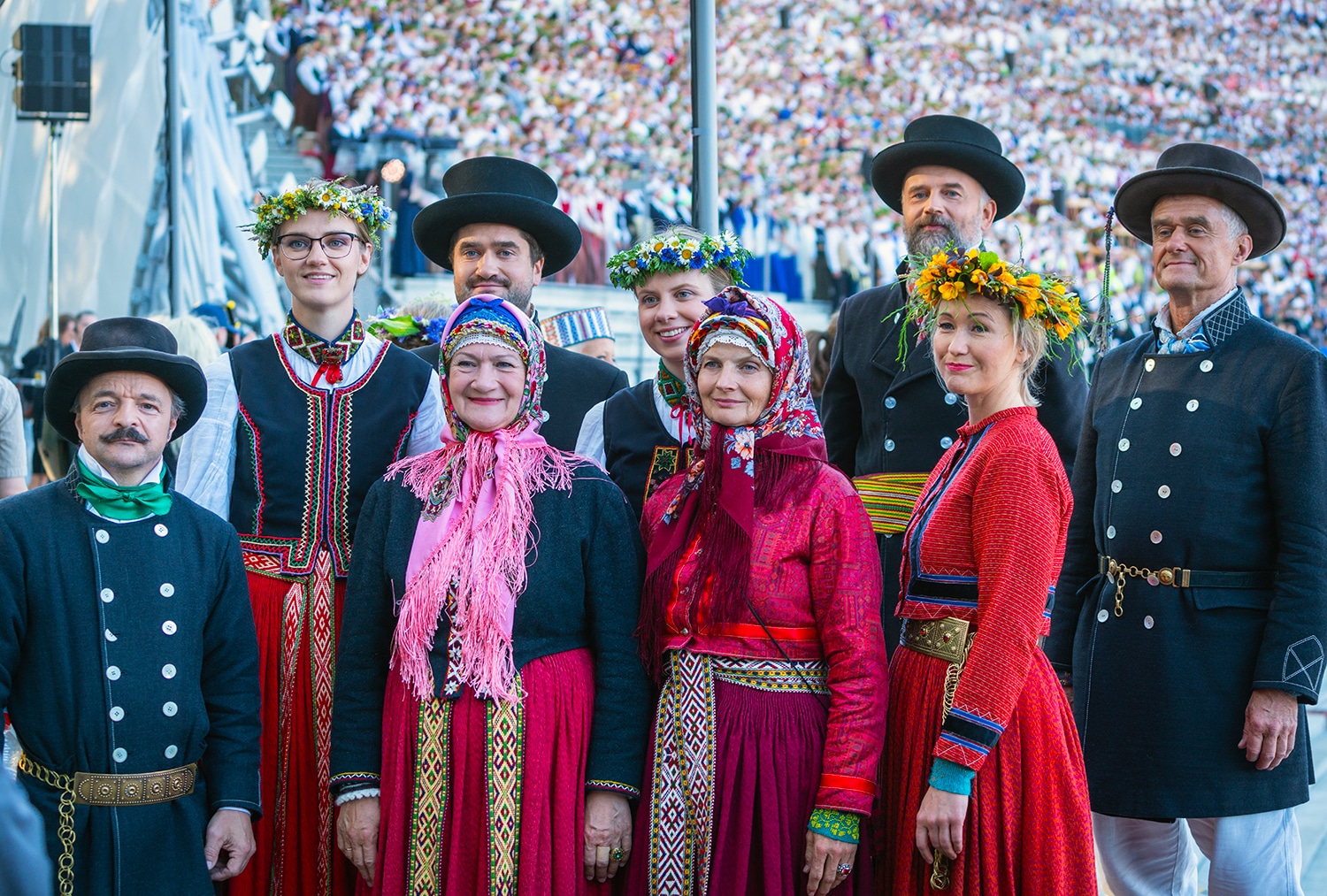
The Talking Latvian Phrasebook
The Talking Phrasebook Series presents useful phrases and words in side-by-side translation and with audio files specifically geared to help students work on listening skills and pronunciation. Below, you will find several useful phrases and words. To the left is the English and to the far right is the Latvian translation. In the center column […]

Russian and Ukrainian: Differences and Similarities
Sharing common roots, Russian and Ukrainian, at first glance, look very similar. This is not so. In reality Russian and Ukrainian have more differences than similarities. The following is an article that originally appeared on Russian7.ru (Русская Семерка). The original can be read here. The following translation to English has been provided by Lindsey Greytak, […]

Quarantine Diaries: Будь как Петя
Quarantine Diaries is a series of free language lessons. Each can take a variety of forms but all focus on building intermediate and advanced vocabulary and listening skills. After the brief introduction, watch the Russian-language public service announcement about coronavirus and the importance of maintaining an effective quarantine. Below this is a transcript with a […]

